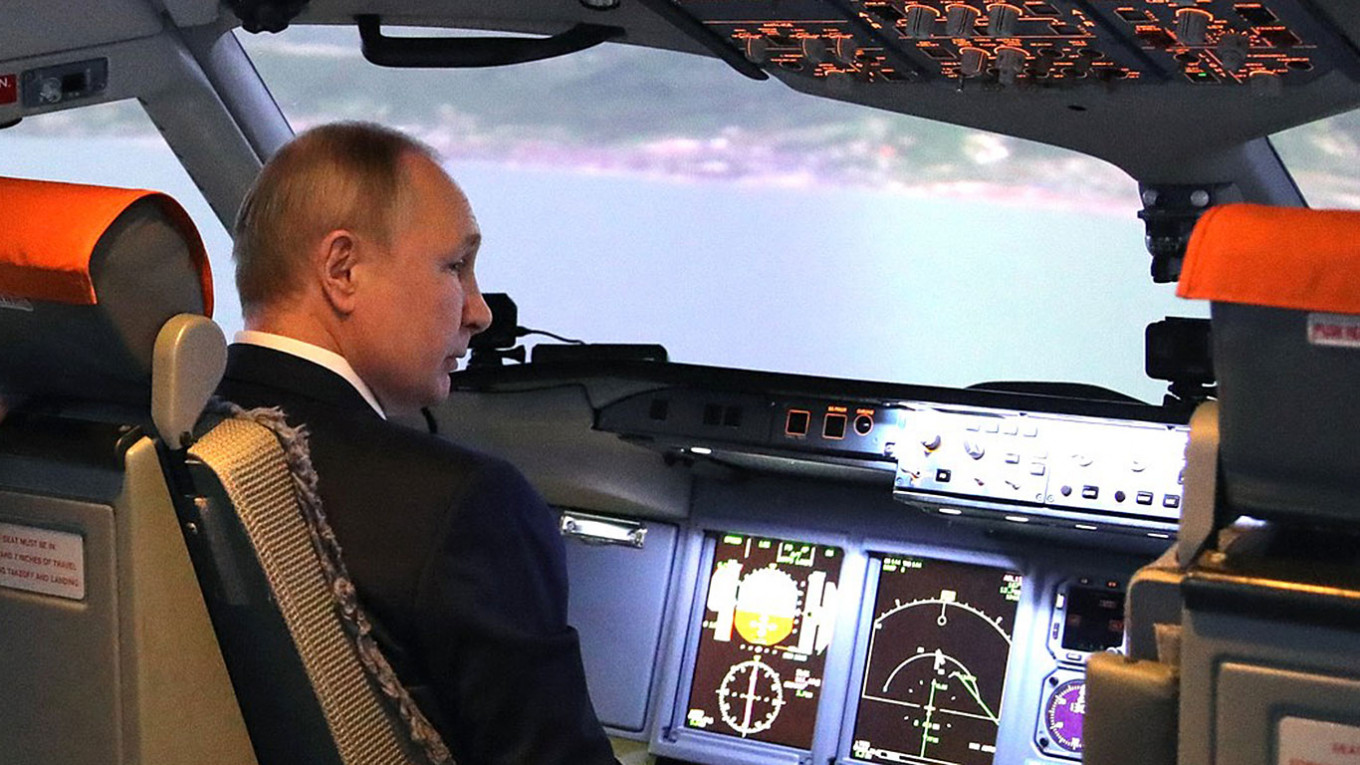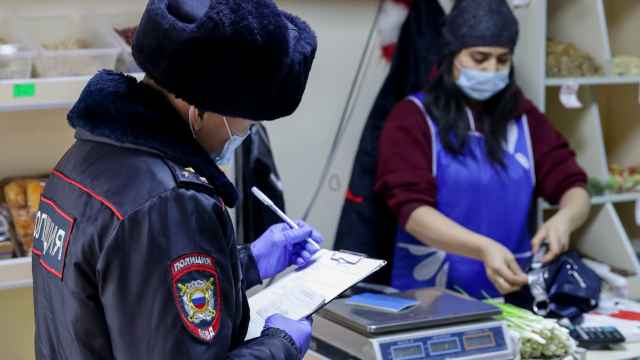On Thursday, President Vladimir Putin ordered his cabinet to “act decisively” against the swathes of foreign companies leaving the Russian market following Moscow’s invasion of Ukraine and imposition of sweeping sanctions.
“In no case should we allow damage to local suppliers. It is necessary to introduce external management, and transfer the enterprises to those who want to work. We have enough legal tools to do so,” Putin said.
The president’s plan would amount to nationalization — the single economic policy proposal to have stirred the Kremlin and Russia’s economic policymakers as they stand on the brink of an unprecedented economic crisis.
With few tools at their disposal and a national economy disintegrating almost before their eyes, the Russian government has appeared paralyzed, analysts say, lurching for Soviet-era policies — like nationalization, currency controls and price caps — in an attempt to soften the blow.
“In terms of the government, the problem is that they’re silent about the economy,” said Ruben Enikolopov, an economist and rector of Moscow’s New Economics School.
“The first reaction for many of them — because they grew up in the Soviet Union, so that’s the mentality they have — is price controls and things like that. They might work temporarily, but in the long-run it’s a disaster for the economy.”
While Russia’s Central Bank quickly sprung into firefighting mode — drastic interest rate hikes, closing the stock market, providing unlimited liquidity to banks and corralling exporters to sell their hard currency earnings — the Kremlin has offered little beyond rhetoric in terms of how it intends to fight an economic slump economists expect will comfortably exceed a 10% fall in GDP this year.
“So far there hasn’t been very much of a strong government position,” said Mario Bikarski, an analyst at the Economist Intelligence Unit. “There’s been no concrete or clearly set-out measures to respond to these sanctions.”
“Different members of the government, including Putin, have said that the situation will be managed and that Russia will survive. But what they’ve implemented so far are things like tax breaks, credit holidays, and some financial support to large businesses. This will not be sufficient at all.”
A weak policy response has been matched by a sharp uptick in defensive and defiant rhetoric, mirroring Moscow’s approach to its military campaign. Earlier this week, the ruling United Russia party introduced a bill into parliament that would slap price controls on staple goods — an approach Russia adopted last year when inflation first started rising.
“A sanctions war has been declared against us,” said deputy Oleg Morozov, a former head of Putin’s domestic policy unit who is promoting the bill. “Speculative factors are pushing up prices … this is a violation of fair competition and moral norms. It undermines the economic security of the country and is an action against our people.”
But economists say it is not just a lack of ideas that has restrained the Russian government from responding more decisively to the looming recession.
“It’s really hard to even imagine what the government can do. In some senses they’re hostage to this situation,” said Enikolopov. “All the main events are completely unrelated to the government’s decisions.”
Back to the U.S.S.R.
Russia had for years been touted as a model of strong, conservative orthodox financial management — low debt, high reserves, a government surplus. But the invasion of Ukraine and tough Western sanctions killed that balance sheet overnight. Now the government faces higher outlays to fund a potentially long military campaign in Ukraine, a hit to revenues from a deep recession at home and a reluctance to buy Russian goods in their key export markets, compounded by a complete inability to raise funds from Western markets.
“Back in the 1990s there was some international support coming to Russia’s aid during this time of crisis,” said Bikarski.
“This will not be happening right now. Russia will have virtually no access to any international financing or support.”
While cash may be in short supply, economists continue to warn the Kremlin against taking even more draconian and irreversible steps.
“Rate hikes, temporary limits on foreign exchange, and other types of capital controls — while highly damaging to the economy — can be unwound relatively easily once the situation stabilizes,” said Elina Ribakova, deputy chief economist at the Institute of International Finance.
“More extreme measures, such as default on company debt or nationalization of property of foreign investors, will create damage that might last years — possibly decades.”
Disquiet at Moscow’s economic response to sanctions has been growing since the invasion. In a rare intervention, Putin ally and one of Russia’s richest oligarchs, Vladimir Potanin, warned Friday that nationalization of foreign companies would be like taking Russia back to the days after the 1917 Bolshevik Revolution.
But Enikolopov fears the temptation of measures like nationalization and government-mandated prices could be too much for the Kremlin to avoid.
“The danger of this approach is it works in the short-term. But this is a crisis that will be very prolonged,” he said.
“The closer we are to a planned economy, the more the government intervenes and nationalises, the harder it will be for the economy to adjust and more likely it will end up really bad.”
A Message from The Moscow Times:
Dear readers,
We are facing unprecedented challenges. Russia's Prosecutor General's Office has designated The Moscow Times as an "undesirable" organization, criminalizing our work and putting our staff at risk of prosecution. This follows our earlier unjust labeling as a "foreign agent."
These actions are direct attempts to silence independent journalism in Russia. The authorities claim our work "discredits the decisions of the Russian leadership." We see things differently: we strive to provide accurate, unbiased reporting on Russia.
We, the journalists of The Moscow Times, refuse to be silenced. But to continue our work, we need your help.
Your support, no matter how small, makes a world of difference. If you can, please support us monthly starting from just $2. It's quick to set up, and every contribution makes a significant impact.
By supporting The Moscow Times, you're defending open, independent journalism in the face of repression. Thank you for standing with us.
Remind me later.







